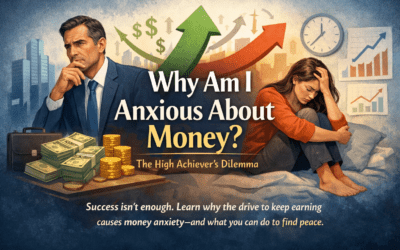How A Person’s Beliefs Become Dream Stealers
In the last post, I explained how our negative beliefs dictate how we think, feel and behave and in some cases, hold us back for going all out to get what we want in life.
The Dream Stealer
 I always ask people what they really want in life and invite them to share the dreams they would pursue if time and money were not an obstacle.
I always ask people what they really want in life and invite them to share the dreams they would pursue if time and money were not an obstacle.
It could be starting a business, traveling the world, finding the perfect mate or relaxing on a foreign beach.
What does show up here and as a consequence there – where the possibility of our dreams lie in wait – is a subtle form of terror.
This may sound odd, but I have seen this happen time and time again….
Someone expresses their dream and within a matter of seconds they start to shrink a bit or the enthusiasm drains from their face.
What Happened?
A person expands to embrace an imagined larger life and then immediately contracts.
This shrinking or pulling back response is so widespread I call it the I Want, But syndrome.
 For instance, you might say I want to buy a house. As you express you desire, you feel a sense of excitement and energy because you tapped into your desire.
For instance, you might say I want to buy a house. As you express you desire, you feel a sense of excitement and energy because you tapped into your desire.
This then triggers a cascade of viral beliefs that get in the way of fulfilling that desire.
That tug of resistance causes a loss of confidence that is linked to feelings of fear and resignation.
The “Buts” Get In The Way
You don’t think any of this – it just happens.
You start thinking of the “buts.” This is all the reasons why you cannot go after your dream.
The dream stealer, like a pop-up ad, jumps up in your mind uninvited.
It is held there by those viral beliefs that drown your excitement by generating excuses, doubts and “what-ifs.”
Every time this happens, your positive energy is drained and the viral belief is reinforced.
Instead of stopping the belief, you give it more power over your life.
I Want…But…
Here are some common examples…
I want to write a book, but no one will read it / it takes too much time.
I want to be a singer, but I’m not talented enough / I’m too old to change careers.
I want to make a lot of money, but it is sinful/selfish to want it / I’m not good with money.
 I want to be in love, but I’m afraid I’ll get hurt/ I’m not attractive enough.
I want to be in love, but I’m afraid I’ll get hurt/ I’m not attractive enough.
I want to start a business, but its too risky / there’s too much competition.
Did you get a jolt of recognition from reading any of those statements?
Cellular Memory
Biologist Bruce Lipton discovered cellular memory.
Our memories, habits, interests and experiences get stored in all the cells of our body, not just our brain.
They get triggered into conscious memory under certain charged circumstances and then unconsciously hold you back.
Desires and Beliefs
Consider your own desires and beliefs…
 What happens when you dream something you would like to have in your life?
What happens when you dream something you would like to have in your life?
Do you follow through or do you forget about it and find excuses why you can’t create it?
How many goals or dreams have you given up or not followed through on?
Are you aware of a voice or body sensation stopping you from believing you could really get what you want or taking action?
What do you think might be the source of this procrastination or inaction?
It is not feasible to act on every inspiration you have, however ask yourself which one or two important goals or dreams have you been putting off.
Your Dreams
How would your life change if you stopped putting off those dreams?
Let’s find out!
Click here or the image below to set up a complimentary clarity session.






Recent Comments